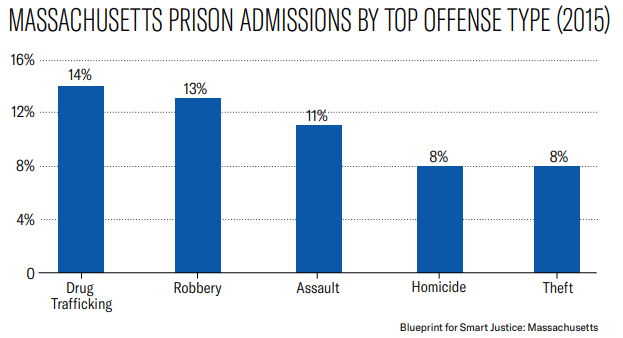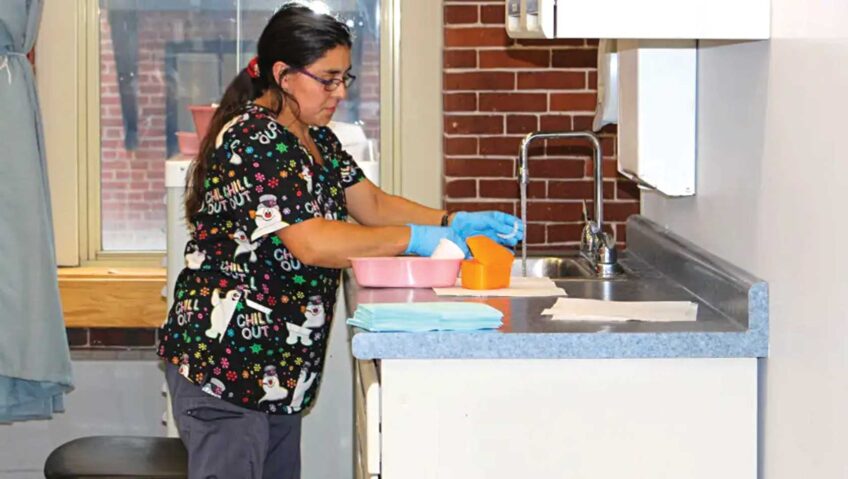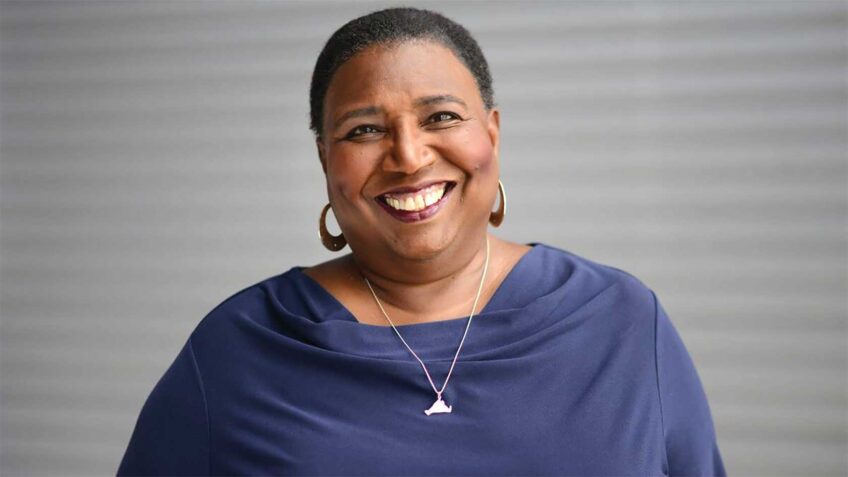
Although legislators passed major criminal law reform in the State House this spring, the American Civil Liberties Union continues to pursue even more changes in the system to reduce Massachusetts’ prison population by over 3,700 in eight years.
This week, the ACLU launched the Smart Justice 50-State Blueprints – a state-by-state analysis of what’s driving people to prison, how long do they stay incarcerated and how many people currently populate prisons. The blueprints outline strategies to reduce incarceration, racial disparities and recidivism for each state.
Here are some of the report’s major highlights for Massachusetts:
Prison population
The Massachusetts prison population nearly tripled in size between 1980 and 2015. As of January 2017, there were 9,496 people in Massachusetts prisons — a 16 percent decrease since 2010.
As with most states, the War on Drugs has played a key role in Massachusetts’ mass incarceration. In 2015, drug offenses accounted for one in four prison admissions for criminal offenses.
Black and Latino offenders
As of 2017, the imprisonment rate for black people in Massachusetts is seven times higher than the white imprisonment rate. While black people constitute only 7 percent of the state population, they make up 27 percent of the prison population.
In 2017, the Latino imprisonment rate in Massachusetts was more than four times that of white people in the state. Overall, Latinos constitute only 11 percent of the total state population, but they make up 25 percent of the prison population.
While the number of women imprisoned in Massachusetts declined by 19 percent between 2010 and 2017, 44 percent of women imprisoned in 2017 were serving time for a non-violent offense.
Mental health and substance abuse disorders
Nearly 1 in 3 people imprisoned in Massachusetts had an open mental health case in 2017.
74 percent of imprisoned women had a mental health case in 2017.
15 percent of imprisoned women had a serious mental health disorder in 2017.
Proposed reforms
- Eliminating cash bail.
- Reducing the rate at which prosecutors charge people for property and motor vehicle offenses.
- Increasing the age of juvenile jurisdiction from 18 to 21.
- Reforming mandatory minimum sentencing laws.
- Promoting alternatives to incarceration like substance abuse treatment, mental health care, and other programs.
- Enacting “presumptive parole,” which would require the parole board to justify denying a person’s release when he or she is eligible for parole.
The ACLU states that Massachusetts would have 3,372 fewer people in prison and save $833,139,279 if these reforms were implemented.
The criminal justice reform package signed by Gov. Charlie Baker in April contained some of the ACLU’s suggested reforms including eliminating mandatory minimum sentences for low-level drug offenders, (not including people trafficking opiates) removing cash bail in cases deemed not necessary and reducing the number of years before ex-prisoners can seal their criminal records from 10 years for felonies and five for misdemeanors to seven and three years.
Reform laws not passed in the spring that advocates had pushed for include raising the age of criminal liability from 18 to 19 and reinvesting funding toward job training and other programs for ex-offenders.






